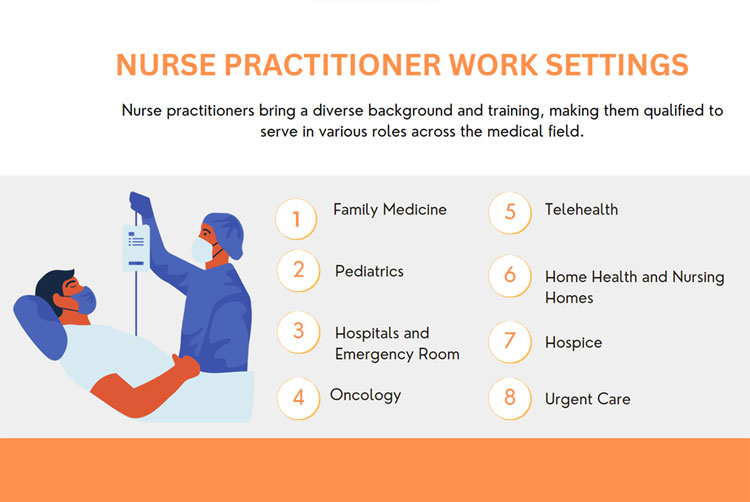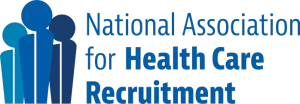Nurse Practitioner Jobs

Starting a career as a Nurse Practitioner is not only fulfilling but also calls for individuals ready to go beyond standard nursing roles. Explore our JobGraze database for diverse Nurse Practitioner job openings in settings like physician offices, hospitals, and outpatient care centers. It’s a great way to begin a rewarding career journey.
Explore our extensive listings, offering a variety of options
- Family Nurse Practitioner Jobs
- Mental Health Nurse Practitioner Jobs
- Pediatric Nurse Practitioner Jobs
- Women’s Health Nurse Practitioner Jobs
- Flexible Nurse Practitioner Jobs
- Remote Nurse Practitioner Jobs
A nurse practitioner is a highly skilled registered nurse with advanced training and a master’s degree in a specialized area like internal medicine, family medicine, pediatrics, psychiatric or women’s health. Their expertise surpasses that of a typical registered nurse (RN) and often aligns with the responsibilities of doctors.
While both registered nurses and nurse practitioners concentrate on patient observation and care, the primary distinction lies in the fact that nurse practitioners have the authority to prescribe treatments, order tests, and make diagnoses whereas registered nurses do not.
To be eligible for a nurse practitioner position, you must meet the following qualifications
- Hold a Master of Science in Nursing (MSN) or a Doctorate in Nursing Practice (DNP).
- Successfully pass the Nurse Practitioner Exam with excellence.
- Apply for Nurse Practitioner Certification or licensing.
More than 75 percent of nurse practitioners specialize in primary care, often identified as family nurse practitioners (FNPs). FNPs exhibit the expertise to diagnose and address a range of health issues, spanning from short-term (acute) to long-term (chronic), in various healthcare settings such as doctor’s offices and outpatient facilities. Furthermore, nurse practitioners have the flexibility to focus their practice in specific areas, such as pediatrics, emergency room care, orthopedics, and psychiatry etc.
Nurse practitioners work in various settings, and while their specific duties may vary, there are common roles and responsibilities that they typically undertake. These include:
- Conducting Patient Assessments: Perform comprehensive patient assessments by reviewing medical history, symptoms, and current health status.
- Diagnosing and Treating Illnesses: Diagnose and treat a wide array of acute and chronic illnesses, delivering short-term and long-term healthcare solutions.
- Prescribing Medications: Prescribe medications, taking into consideration patient conditions, and collaborate with healthcare professionals as required.
- Collaborating with Healthcare Teams: Foster effective collaboration with physicians, nurses, and other healthcare team members to ensure holistic and coordinated patient care.
- Ordering and Interpreting Diagnostic Tests: Order and interpret diagnostic tests, such as blood work or imaging, to facilitate precise diagnosis and treatment.
- Managing Chronic Conditions: Take a lead role in managing chronic conditions, working closely with patients to develop and implement effective care plans.
- Patient Counseling: Provide patient counseling and support, addressing concerns, answering questions, and offering guidance on managing health conditions.
- Emergency Support: Respond to emergencies by delivering immediate medical aid, utilizing clinical expertise to stabilize and support patients until specialized care is available.
Considering a career as a nurse practitioner? Keep in mind these crucial qualities for a successful start to your journey.
Good communication is key for a nurse practitioner. It involves effectively interacting with colleagues, patients, and their families. You must be able to explain complex medical information in a clear and understandable way.
Nurse Practitioners (NPs) can either set up their independent practice or partner with other FNPs or physicians in a larger clinic or hospital setting. If you choose to independently work, possessing strong leadership skills becomes important, enabling you to make confident decisions, especially in challenging situations.
In your role as a nurse practitioner, it’s crucial to have sharp analytical skills. Every patient comes with a different body, unique medical history, and specific needs. You need strong analytical thinking to gather the right data, solve complex problems, and make rational decisions.
As a nurse practitioner, your attentiveness is crucial. It requires you to carefully listen to and understand the specific needs and concerns of each patient. By being fully engaged and responsive, you build trust and provide personalized care, creating a supportive and healing environment in healthcare.
As a Nurse Practitioner, being detail-oriented is crucial, according to the Bureau of Labor Statistics. You need to stay vigilant when assessing a patient, noticing even subtle shifts in their health status, laboratory results, or vital signs. Additionally, you should be meticulous in understanding medication dosages.
In your role as a Nurse Practitioner, being resourceful is key, especially in a fast-paced setting. You must know how to obtain what you need to ensure excellent patient care or support the registered nurses and nurses’ aides you oversee. During emergencies, you may need to come up with new approaches to solve problems, such as finding alternatives when supplies are running low.
According to salary.com, the average salary for Nurse Practitioners in the United States is $123,455, with a typical range between $114,558 and $134,111. Entry-level positions typically start at $97,530 per year, while seasoned professionals can earn up to $150,069 annually. If you opt for a remote position, the average annual pay for a Remote Nurse Practitioner Job in the United States is $127,976.
Whether you’re seeking FNP Nurse Practitioner jobs, psychiatric Nurse Practitioner positions or another option, your Nurse Practitioner job search begins here. Explore our listings and elevate your nursing career today with us.
What are the key factors to consider when searching for Nurse Practitioner positions?
You need to consider factors such as the work environment, patient population, opportunities for professional development, and alignment with your career goals when searching for NP positions.
Is it common for Nurse Practitioners to engage in locum tenens or temporary assignments?
Yes, locum tenens work can offer flexibility and exposure to different practice settings. It allows NPs to gain diverse experiences and may lead to permanent opportunities or networking connections.
What strategies can Nurse Practitioners employ to navigate the job market during economic uncertainties?
During economic uncertainties, NPs can explore opportunities in high-demand specialties, consider locum tenens or temporary positions, and remain adaptable to changes in the healthcare landscape.
What is the current job outlook for Mental Health Nurse Practitioners, and are there specific areas of high demand?
The job outlook for Mental Health Nurse Practitioners is generally positive, with demand increasing due to a growing recognition of the importance of mental health care.
What are Remote Nurse Practitioner Jobs, and how do they differ from traditional on-site roles?
Remote Nurse Practitioner Jobs allow NPs to provide healthcare services from a location outside of a traditional clinical setting. This could involve telehealth consultations, virtual patient care, and remote collaboration with healthcare teams.












